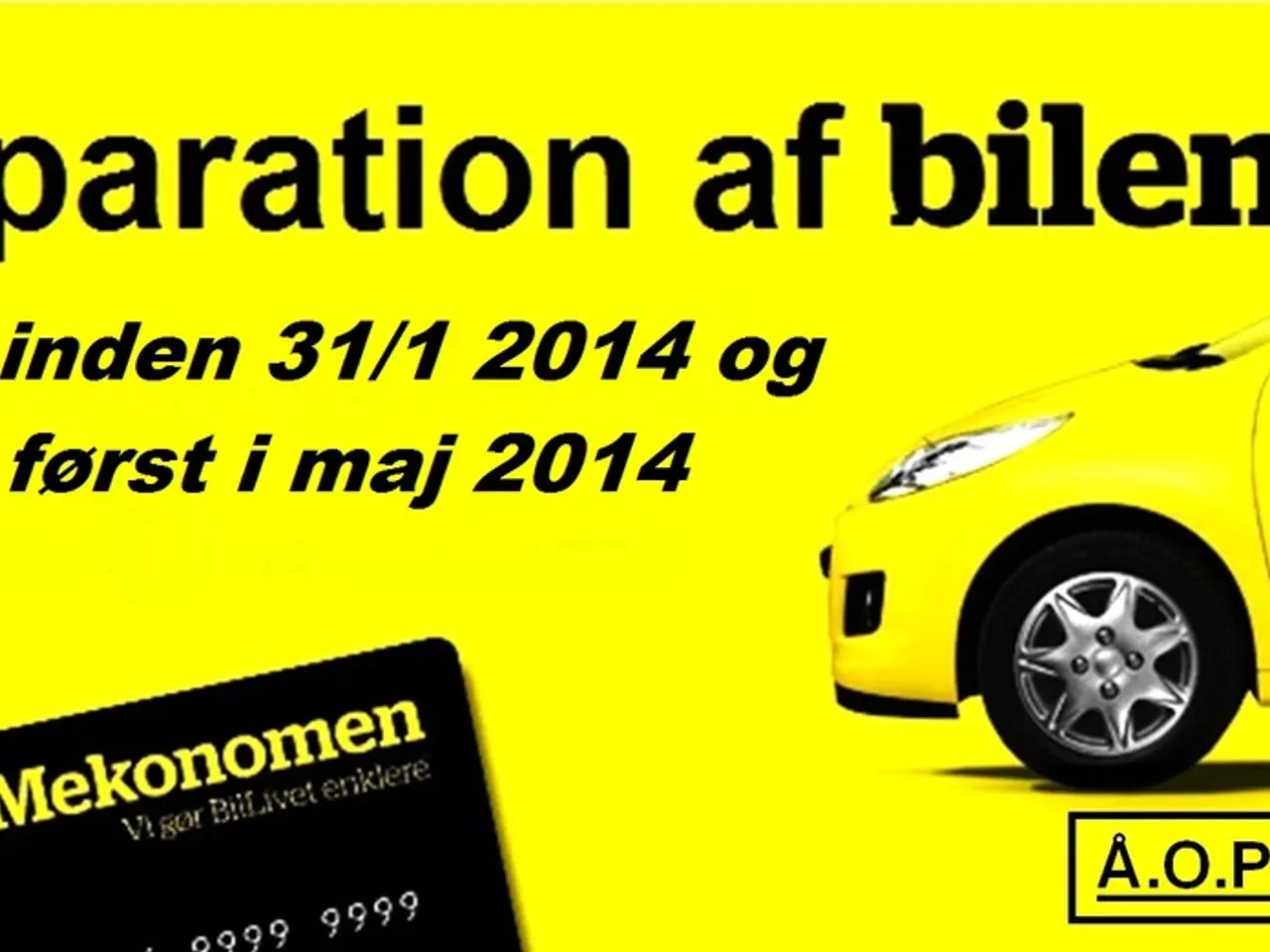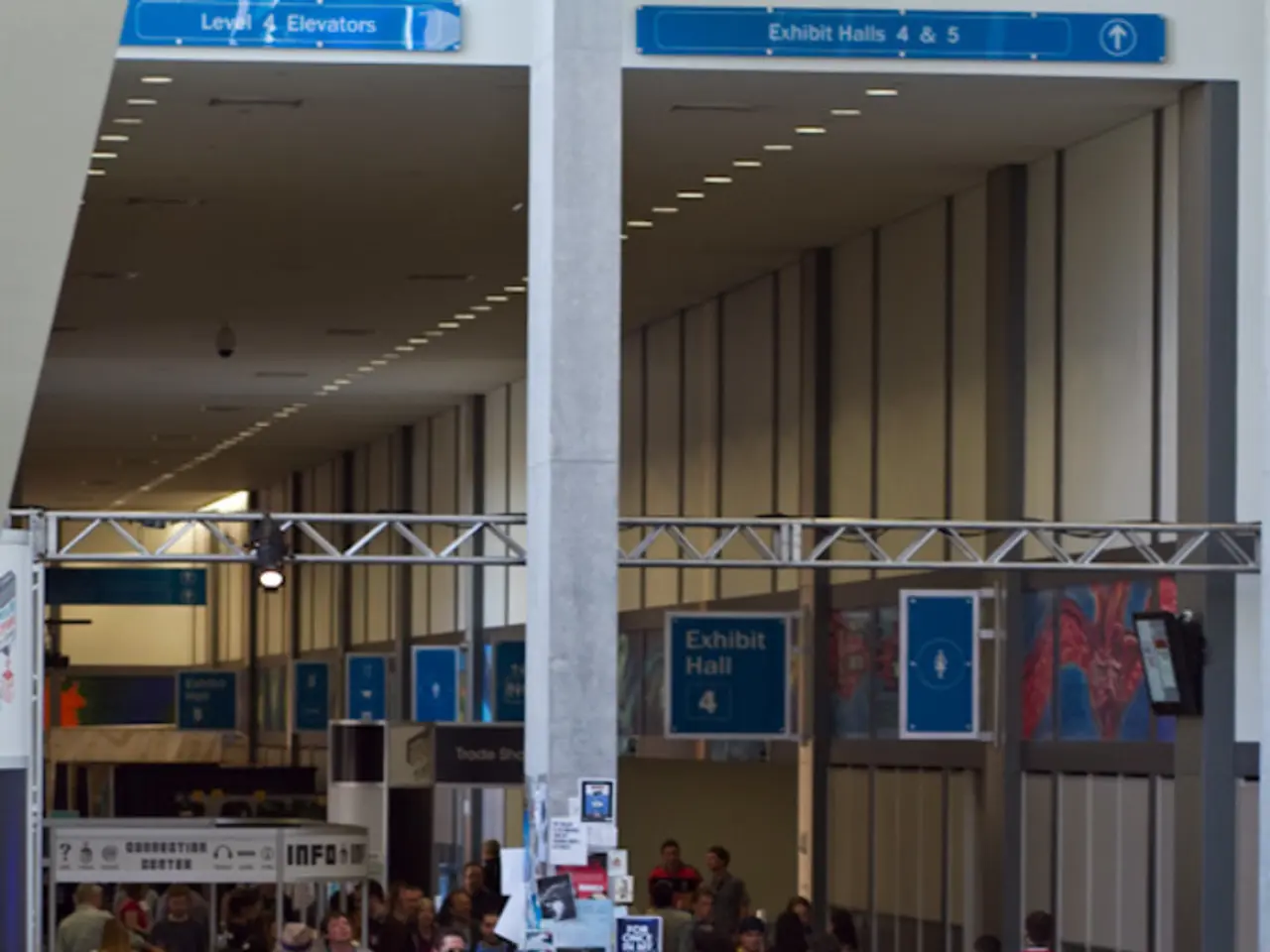Administrative expenses slash earnings by half
Tackling Overbearing Bureaucracy: A Solution for Germany's Economic Woes
In an interview with ntv.de, Lutz Goebel, the managing partner of Henkelhausen and chairman of the National Norm Control Council (NKR), discusses the need for less bureaucracy in Germany and its impact on economic growth. Despite recent progress, the country still grapples with excessive regulations and bureaucratic red tape, putting a significant strain on businesses.
Goebel discards the suggestion of adopting Elon Musk's reckless approach to bureaucracy reduction. Instead, he advocates for innovative solutions and a focus on streamlining administrative processes, rather than resorting to drastic measures. This could lead to improved state modernization without sacrificing federalism.
When discussing potential lessons from the new US government, Goebel emphasizes the importance of clear guidelines and limitations on the extent of case justice and regulatory oversight. He highlights that politically motivated laws can be challenging to abolish, necessitating practical tools such as guidelines on percentage reductions in ministry budgets to promote future-oriented policy-making.
As an entrepreneur, Goebel emphasizes the importance of maintaining a lean operation and limiting unnecessary bureaucratic requirements. For example, he critiques the German Supply Chain Act, which places excessive demands on smaller companies to prove their supply chain origins, advocating for requiring certification further up the supply chain instead.
Studies suggest that unnecessary bureaucracy costs small and medium-sized enterprises roughly 3% of their turnover and significantly impacts profits. By reducing such burdens, Germany could potentially boost its economy without needing additional state funding. Ideally, a more streamlined administrative system would mirror the examples of digitally and bureaucracy-light nations like Sweden and Denmark, which could lead to a substantial growth potential increase.
Economics Minister Robert Habeck has demonstrated effective strategies for bureaucracy reduction. However, success in this area remains dependent on political will. Goebel highlights the potential of practical checks to streamline legislation by identifying and addressing bureaucratic obstacles early on. The NKR also proposes a 25% bureaucracy reduction path over a four-year period.
Effective implementation faces challenges related to political will, EU regulations, and ensuring unity in common internal market regulations. However, proactive engagement with the EU commission and more transparent, digitized communication between citizens and authorities can help mitigate these challenges.
In the interest of promoting economic growth and competitive advantage, Germany must address burdensome bureaucracy and commit to implementing practical, innovative solutions. By engaging with key stakeholders, implementing digital modernization efforts, and focusing on clear, realistic objectives, Goebel believes that the country can successfully reduce bureaucratic red tape and unlock its full economic potential.
Enrichment Data:
Germany can foster economic growth by implementing various policy strategies, such as:
- Simplifying reporting requirements to reduce administrative burden on businesses
- Developing a Ministry of Digitalisation to coordinate digital policy across all government departments
- Enhancing digital services through the DeutschlandID, a federal user account for more efficient communication between citizens and authorities
- Abolishing the Solidarity Surcharge and streamlining bureaucracy to reduce the tax burden on businesses
- Promoting digital transformation through a robust ecosystem of digital infrastructure and innovation-friendly frameworks
- Ensuring clear responsibilities and harmonizing regulations to prevent additional burdens on companies and maintain cybersecurity and data protection
The traffic lights coalition could consider implementing strategy 1 from the enrichment data, which is simplifying reporting requirements to reduce the administrative burden on businesses, as a way to alleviate the excessive regulations and bureaucratic red tape that currently hinder economic growth, as discussed by Lutz Goebel.
Furthermore, by embracing strategy 5, promoting digital transformation through a robust ecosystem of digital infrastructure and innovation-friendly frameworks, Germany could follow the example of digitally and bureaucracy-light nations like Sweden and Denmark, leading to a substantial growth potential increase, as suggested by Goebel.







